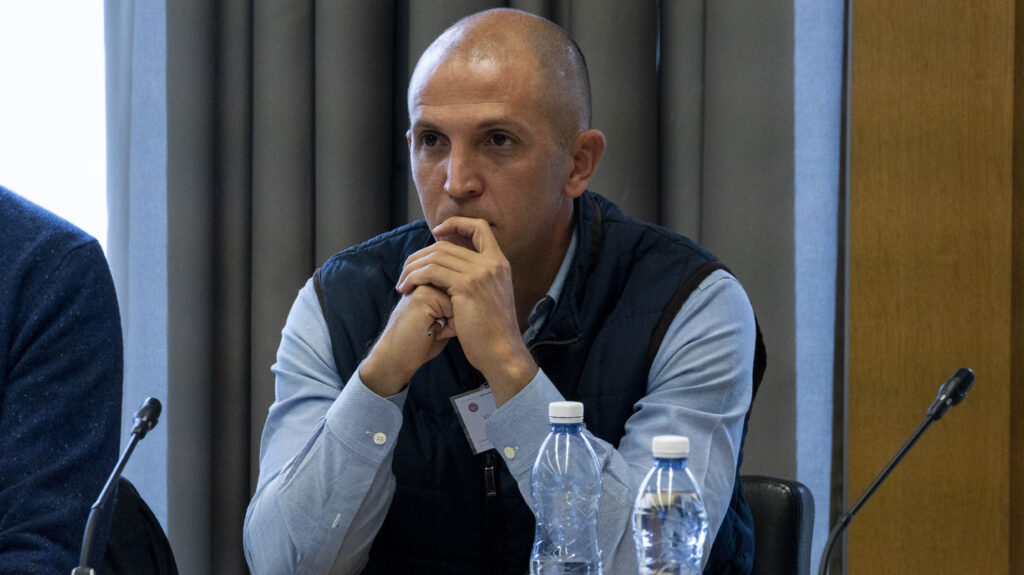
We sat down with Vicente Suanno, a retired professional footballer turned sporting director, to discuss his journey from a young football enthusiast to a seasoned sports executive. In this interview, Vicente shares his experiences, challenges, and triumphs both on and off the pitch.
Where did your love of football first come from?
I remember being seven years old, watching the World Cup in Italy in the 90s. The opening ceremony song, ‘Stata Italiana,’ captivated me. I had loved football since I was four, but that moment solidified it for me—I knew I was made to be a football player. I was born in 1983, and from that point on, I dedicated myself to the game. I played professional football for 18 years and retired at 36. Representing my country was a huge honor, and my passion for the game remains strong. I even met my wife while playing for a club, and we’ve been married for 14 years with two kids. Despite enduring 12 knee injuries, I never let that stop me.
How did you cope with injuries, both physically and mentally?
It was tough. My first major knee injury happened when I was 20, just as I received a big offer to play in Europe. In the 89th minute of a game, I jumped and landed badly, resulting in my first ACL surgery. From that point, I had to develop a strong mental resilience. I learned that life is full of challenges, and you can’t let setbacks define you. Each injury made me stronger mentally and more determined to keep playing the game I love.
Were there any players who inspired you to keep playing?
Absolutely. Fernando Redondo, an Argentinian midfielder from the 1994 World Cup, was my first role model. He played my position and was very elegant on the field. Later, Brazilian striker Ronaldo, Zinedine Zidane, and Paul Scholes from Manchester United also inspired me. These players had a significant impact on my career.
How did you transition to a career off the pitch?
When I was about to retire at 34, I didn’t want to stay idle. I wanted to remain in football and make a difference. So, I pursued various studies, including FIFA’s CIES program in Venezuela, a sports management course at the University of Palermo in Argentina, and the Conmebol sport management course. Eventually, I aimed for the UEFA MIP program. At 36, I became the sporting director at Deportivo La Guaira, my last club. Under my tenure, we won our first championship. I later joined the Venezuelan FA as the Director of Competitions, a role I’ve held for a year and a half now.
Have you met any interesting people through your studies?
The UEFA MIP program was transformative. It marked the beginning of my second career and introduced me to a vast network of incredible people. Despite initial fears about the language barrier and being the odd one out from South America, I formed close bonds with my peers and professors. The network and friendships I gained are invaluable.
What skills did you learn that you use in your current role?
Strategic planning is crucial. Thinking one, two, or even five years ahead is essential. I also learned the importance of leadership, surrounding myself with trustworthy people, and not being afraid to voice my opinions. These skills, along with understanding different models and best practices from Europe, have been very beneficial in my current role.
Do you think it’s important for players to stay in the game in some capacity after retiring?
Absolutely. Former players bring a unique perspective from their on-field experiences. They understand the emotions and challenges of the game, which are invaluable in decision-making roles. It’s crucial to have players in executive positions to ensure decisions are made with a true understanding of the sport’s intricacies.
How do you juggle family life and your career?
Choosing the right partner is key. My wife has been with me almost my entire career, supporting my dreams. Our shared values and future plans keep us united. My kids are young, and I’m excited about what’s ahead. I love learning and am always eager to adapt and grow, both for my family’s sake and my career.
If you could speak to a younger version of yourself from 10 years ago, what advice would you give?
I would tell myself to trust in my abilities and not be swayed by others’ opinions. People speak from their own experiences, which don’t necessarily reflect what you’ll face. Believe in yourself, live fully, and don’t dwell on negativity. Stay positive and confident, knowing that you have everything you need to be happy and successful.
Follow the MIP Alumni Association on X